Simple Home Remedies for Frequent Urination
By Dr Rajeev Singh +2 more

Get,

to manage your symptom
Get your,


4 Cr+ families
benefitted

OTP sent to 9988776655



You’ve successfully subscribed to receive
doctor-approved tips on
Whatsapp

Get ready to feel your best.

Hi There,
Download the PharmEasy App now!!


Register to Avail the Offer
Send OTPBy continuing, you agree with our Privacy Policy and Terms and Conditions

Hi There,
Sign up on PharmEasy now!!
Trusted by 4 crore+ families

OTP sent to 9988776655



You have unlocked 25% off on medicines




Code: NU25

Comments


Leave your comment here
By Dr Rajeev Singh +2 more
Table of Contents
Do you find yourself waking up in the middle of the night just to pee, or have to take multiple bathroom breaks throughout the day?
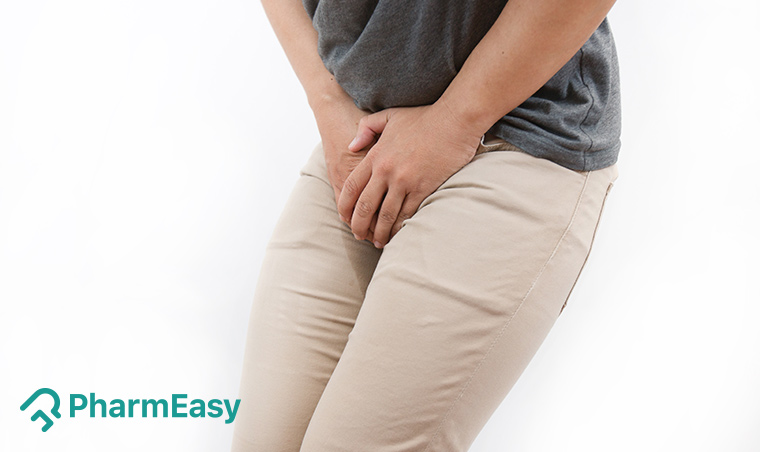
While the urge to urinate is natural and something we all experience, if you notice that you’re going more frequently than normal, it is important to pay attention. In certain situations, like pregnancy, frequent urination can be normal. However, if this becomes a persistent issue, it could be a sign of an underlying health condition that requires attention.
The need to urinate frequently can be annoying, but it is also manageable. So let’s look at some home remedies to help manage frequent urination.
Friendly Reminder: The information shared here is for educational purposes only and the reader should consult a registered medical practitioner before implementing any changes to their health routine.
Frequent urination is a common symptom linked to various conditions. Its causes can vary depending on factors like gender, age, and life stage. Here are a few possible reasons:
The need to pee often can also be due to certain conditions that affect the urinary tract[1]. Some of the conditions are:
You might be experiencing frequent urination if you have high blood sugar levels. This is common in people with uncontrolled diabetes. Thus, frequent urination may be an indicator for you to check your blood sugar levels[1].
During pregnancy, there is increased pressure on the bladder, with the baby taking up more space, therefore, causing the frequent urge to urinate.
Pressure is exerted on the bladder with an increase in the size of the prostate, which leads to frequent urination[1].
Some other causes for frequent urination include:
Frequent urination is itself a symptom which can occur due to any of the above-stated causes. If you notice that you are urinating more than four to eight times a day, you might be having the issue of frequent urination. When you consult your physician, you may have to undergo an examination and tests such as urine test, ultrasound and/or cystoscopy to track down the cause of frequent urination.
Frequent urination, especially in elderly males, can be due to benign hyperplasia of the prostate, due to which there is an obstruction in urine flow and frequent urge to void the bladder. An elderly male having such symptoms should visit his physician and get himself investigated and treated accordingly.
Dr. Nikhil Yadav, MBBS MD,CCEBDM
The urge to frequently pee can occur to anyone regardless of age and gender. However, it is much more common in elderly and middle-aged individuals, men with an enlarged prostate and pregnant women. Frequent urination can be managed over time by treating the underlying cause. In addition to the prescribed treatment, you may discuss with your doctor the benefits of popular home remedies for frequent urination. Here are some remedies that may help:
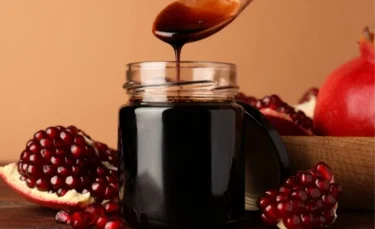
Pomegranate skin has the ability to destroy microorganisms (anti-microbial)[11]. It is especially effective against a bacteria called E.coli, which is mainly responsible for urinary tract infections (due to which frequent urination might occur)[2]. Oral consumption of pomegranate skin extracts can support the treatment of UTI and help manage frequent urination.
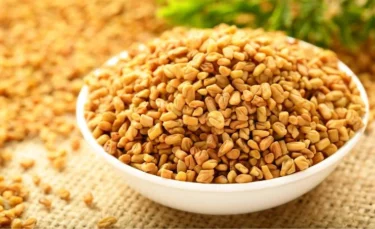
In a study[12], it was found that fenugreek can be used to decrease blood sugar levels and improve the quality of life. This activity is due to the presence of specific bioactive compounds (alkaloids, steroids and trigonelline). It also acts as an antioxidant and reduces oxidative stress in the body, which is a cause of diabetes and frequent urination[2]. You can make use of fenugreek seeds by simply consuming a small amount of them daily, either in the form of powder or by merely swallowing the seeds.
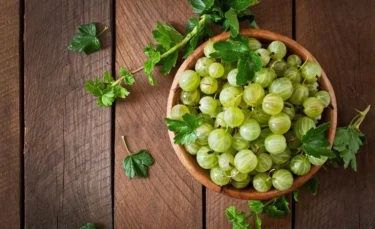
Amla is rich in vitamin C and helps manage blood sugar levels, reducing frequent urination caused by uncontrolled blood sugar levels[13]. It is especially helpful for the urinary system as it promotes the elimination of urine but does not overly stimulate urine flow[3] . You can use amla as a home remedy for frequent urination by simply preparing its juice. It can be consumed either directly or by adding water to it.
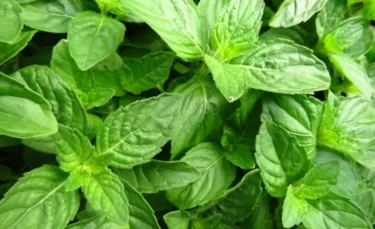
Tulsi is effective against various bacteria, fungi and viruses. In Ayurveda, it is used to manage multiple infections, like urinary tract infections (a common cause of frequent urination)[4]. You can crush a few leaves of tulsi and eat them with a little bit of honey. You can also use tulsi leaves to make its extract by boiling them in a little bit of water. Then, drink this extract to gain the benefits of tulsi.
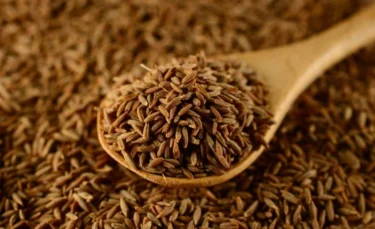
Cumin is an aromatic plant. It is used for adding flavour to dishes and also has medicinal value. According to research[14], the essential oil of cumin has activity against a bacteria that is popular for causing urinary tract infections. It also stated that cumin could be used alone or with other microbe-destroying agents to manage bacterial infections. Thus, it might help in relieving frequent urination caused by urinary tract infections. You can use cumin to remedy frequent urination by boiling it in water and drinking the water.
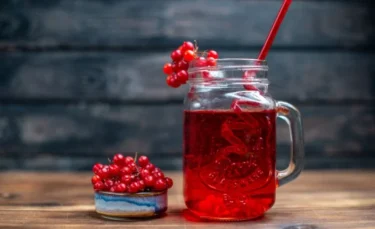
It is hypothesised[6] that cranberries can be effective in treating urinary tract infections. It may be due to its activity against the bacteria E.coli, known for its notorious nature of causing urinary tract infections. Cranberries might act against this bacteria by not allowing it to attach to the urinary tract walls. This can be used as one of the natural remedies for frequent urination due to UTI in females as well. You can consume cranberry in the form of juice that is available commercially, or you can make a juice and drink it. Soak the dried cranberries in water for some time, then blend them in a blender to make the juice at home.
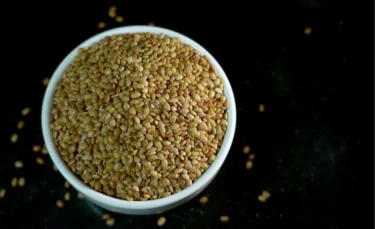
Horse gram has many traditional uses. It has been used for a long time in traditional folk medicine. It has various bioactive compounds, which it is found to help manage a variety of diseases, including urinary disorders. It is effective against E.coli, among many other bacteria[7]. Therefore, it might help deal with frequent urination caused by urinary tract infections. You can take a few spoons of horse gram, add it to a hot pan and roast it. This roasted horse gram can be eaten directly or made into a powder, mixed with water and consumed. Regular use might show you the beneficial effects.

Kegel exercises help in strengthening the muscles of the pelvic region. They are also helpful in strengthening the urinary bladder. Therefore, they can be helpful for frequent urination, which might occur due to weakened muscles of the pelvic region[10]. The following are the steps of the exercises:
Also Read: Simple Home Remedies For Pinworms
There are a wide range of reasons why frequent urination can occur. They range from casual to severe conditions. Therefore, if you notice a change in the frequency and pattern of urination or are confused about how to control frequent urination, you should consult a doctor. However, if you notice the following symptoms along with frequent urination, please get in touch with your doctor immediately as it might be an indicator of a more serious problem:
Also Read: Best Home Remedies for Appendicitis Recovery
Needing to pee so frequently can be an inconvenience to anyone. The occurrence of this symptom can be due to common causes or may be due to underlying medical conditions like diabetes. The treatment of the underlying cause often helps reduce the frequency of urination over time. Additionally, natural remedies such as amla, horse gram, and Kegel exercises might provide relief. However, if you find yourself urinating more than four to eight times a day or experiencing symptoms like vomiting or fever, it’s advisable to consult a doctor.
Also Read: Home Remedies For UTI By Dr. Siddharth Gupta
The frequency of urination depends on various factors like food and water intake. There is no specific normal number of times a person should pee that can be said to be normal but if you notice that your need to urinate in a day exceeds four to eight times, or has significantly increased than usual, you should consult a doctor to find out the exact cause.
Stomach infection is usually not a cause of frequent urination. However, infection of the urinary tract might cause frequent urination.
Amla juice is a home remedy that may be used for frequent urination in addition to the prescribed treatment. It has beneficial action for the urinary system, is rich in vitamin C, and might help with frequent urination as well [3]. It is not a proven treatment though.
Though rare, there is a possibility that frequent urination might be caused due to bladder cancer or prostate cancer[1].
Disclaimer: The information provided here is for educational/awareness purposes only and is not intended to be a substitute for medical treatment by a healthcare professional and should not be relied upon to diagnose or treat any medical condition. The reader should consult a registered medical practitioner to determine the appropriateness of the information and before consuming any medication. PharmEasy does not provide any guarantee or warranty (express or implied) regarding the accuracy, adequacy, completeness, legality, reliability or usefulness of the information; and disclaims any liability arising thereof.
Comments

Leave your comment...

View all comments(4)
You may also like
good content
Dear Dr. Rajeev Singh:
Greetings.
Thank you very much for this very useful article,
which I came across just a couple of days ago.
However, would appreciate, if the following
queries on the same can be addressed:
1. Re, Pomegranate Paste:
Is it the outer hard shell that you are referring to
as skin which has to be ground to a paste?
2. Re. Fenugreek Seeds & Amla:
There is no mention of
the ability of the above 2 items, to fight E.coli,
which you mention is the main reason for UTI?
So, are they still worth taking?
3. Re. Cumin Seeds
Do they need to be made into powder,
before boiling it in water?
Thanks in advance,
Regards,
Vijaykumar M
Dear Dr. Rajeev Singh:
Greetings.
Forgot to add 1 more question (below)
to my previous comment on this article:
Re. Using Horse gram to counter UTI:
Could you please clarify,
whether Horse gram powder
can be taken along with rice
to resolve the UTI issue?
With Thanks and Regards,
Vijaykumar M
Great information